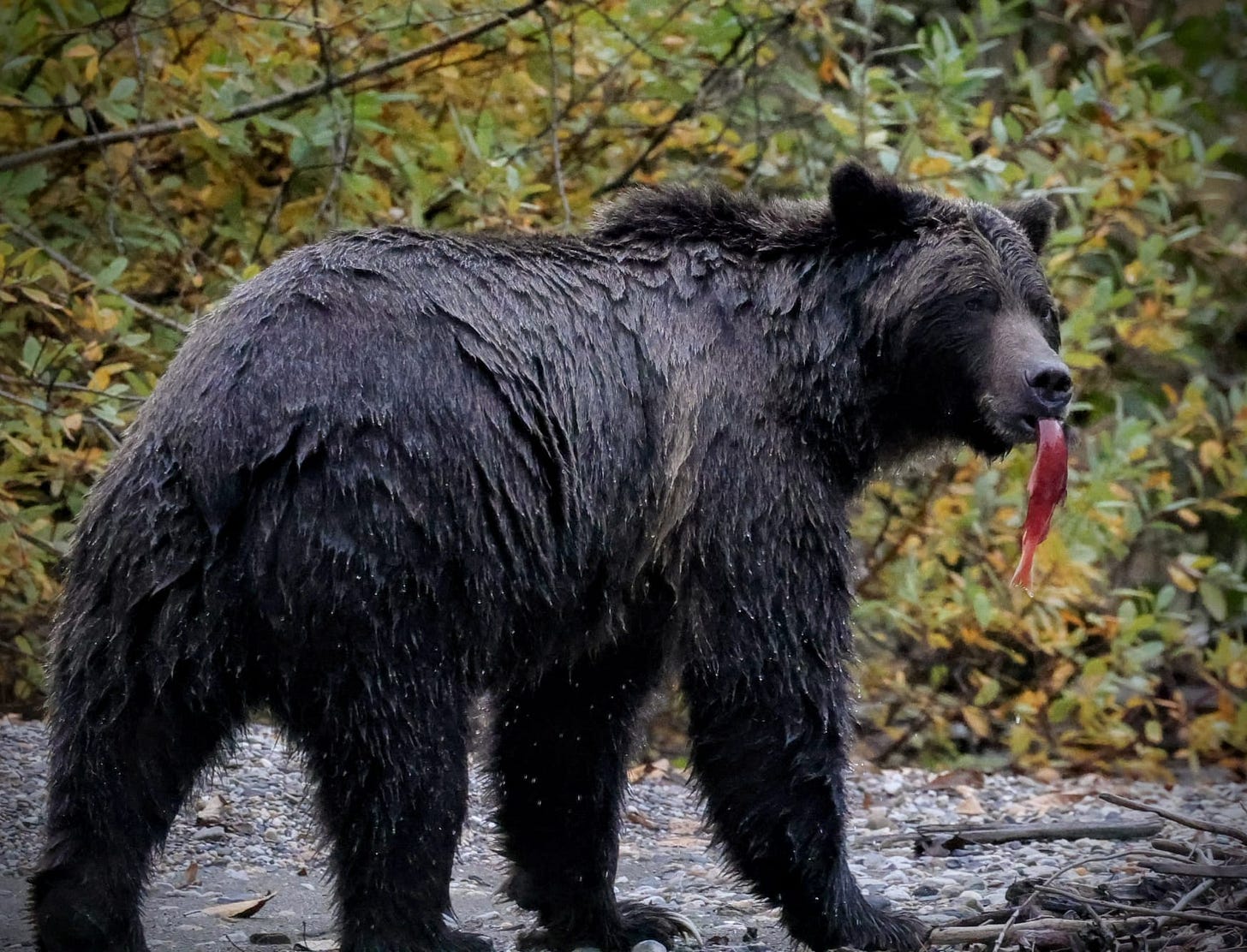The Bears are Back
After a decade of poor fish returns in our river, this year the salmon finally bounced back. And with them came the grizzly bears...
(Photo courtesy of Patrick Steffes who stayed at Wild Bear Lodge for a week earlier this month)
We really couldn’t have asked for a better bear viewing.
Just as Paul, a veteran guide who has been with us for almost a decade, emerged at one of our secret riverside spots a large male grizzly came into view.
Paul asked the four guests with him to get down and…


